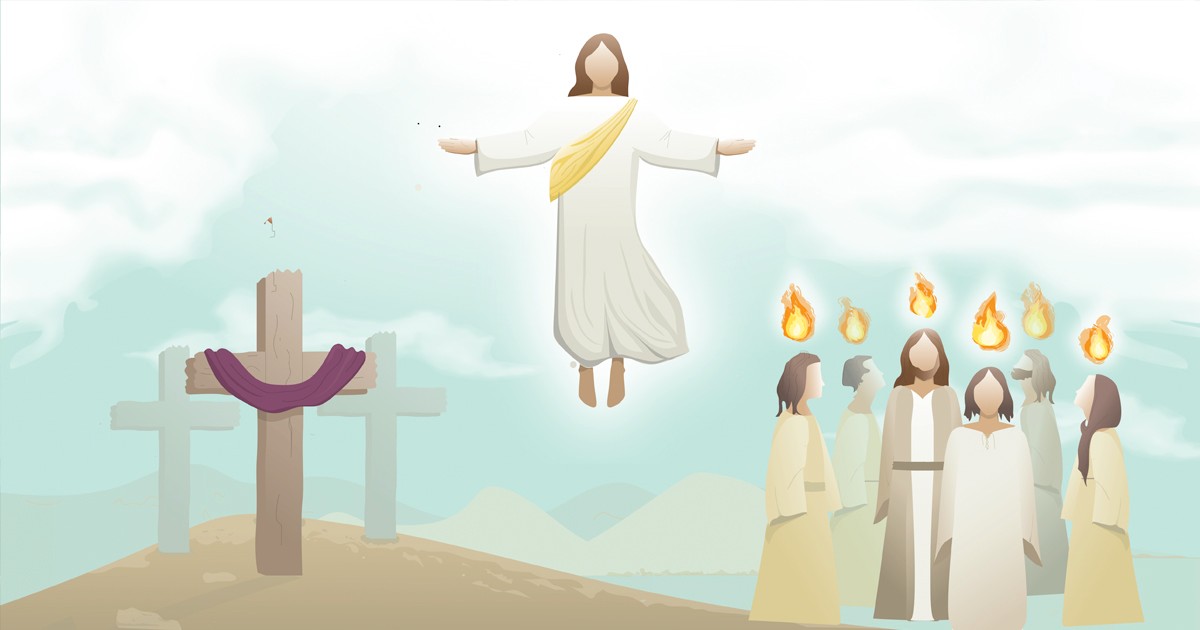 Before Jesus began his public ministry he went into the wilderness to fast for 40 days. When it was over, he returned “in the power of the Spirit” (Luke 4:14). If fasting was key for Jesus to operate on this earth in spiritual power, the same must be true for his disciples.
Before Jesus began his public ministry he went into the wilderness to fast for 40 days. When it was over, he returned “in the power of the Spirit” (Luke 4:14). If fasting was key for Jesus to operate on this earth in spiritual power, the same must be true for his disciples.
Unfortunately, his original disciples often missed the point. Although Jesus gave them tremendous spiritual authority, when faced with a boy suffering demonic torment they were unable to set him free (see Mark 9:14-29). Upon Jesus' arrival, the demon was driven out and the disciples were rebuked for their spiritual impotence. In some early biblical manuscripts, Jesus notes, “This kind can come out only by prayer and fasting.”
There are challenges we will face in our lives and ministry, confrontations with evil we will encounter, that will only result in Christ's victory manifested through prayer and fasting. We neglect such a lifestyle to the detriment of the Church, ourselves and the lost.
Not By Bread Alone
In our overindulgent western culture, our god is our stomach (see Philippians 3:19). Through fasting we put our flesh in its proper place and give the Spirit first place; we tell our bodies, our appetites, to wait; we declare that we do not live by bread alone, but by every word that proceeds from the mouth of God (see Matthew 4:4). By fasting, we proclaim that our hunger and thirst after God and his righteousness is greater than our hunger for our next meal.
God does not change and will not be manipulated, so our fasting does not persuade him to do something against his will.Nor does it impress God with our piety. Instead, we are changed. The psalmist David said that he humbled himself with fasting (see Psalm 35:13). In 1 John 3:16 we read, “This is how we know what love is: Jesus Christ laid down his life for us. And we ought to lay down our lives for one another.”
Fasting is one way to “lay down our lives” for our brothers and sisters in Christ. When we become aware of someone in need, we can enter into a period of fasting and prayer, laying down our lives, our appetites, our physical comforts for the sake of others as we focus our energies on the Lord, Scripture and intercession. Surely this is what Jesus referred to when he spoke of the necessity for his disciples to deny themselves, take up their crosses and follow him (see Matthew 16:24).
In the Sermon on the Mount, Jesus taught his disciples how to pray and fast, with an underlying assumption that they would do both (see Matthew 6:5-18). When his followers were criticized for their lack of dietary restraint relative to John the Baptist's disciples, Jesus assured the critics that when he, the bridegroom, was taken from them, then they would fast (see Luke 5:35).
In the Old Testament, fasting is a prerequisite for revival. In Joel 2, prior to the description of the outpouring of the Holy Spirit on all flesh—later quoted by Peter at Pentecost—the people of God are challenged to “declare a holy fast, call a sacred assembly” (Joel 2:15). Then God promises, “And afterward, I will pour out my Spirit on all people” (Joel 2:28). Is it possible that greater revival, an increase in the presence of the Holy Spirit, is delayed in our day as a result of our lack of fasting—our self-indulgence rather than our self-denial? How often do we really say “no” to our appetites and cravings for the sake of seeking God through fasting and prayer?
Benefits of Fasting
Scripture shows that fasting is intended to be a universally practised discipline by the covenant people of God. From this obedience flows many benefits. In fasting we humble ourselves, and we know that God gives grace and favour to the humble (see James 4:10). Jesus' example reminds us of the power over temptation connected with fasting (see Luke 4: 1-13). Throughout Acts, the early Church gathered corporately for periods of prayer and fasting to gain clarity and guidance regarding the will of God. Imagine if Salvation Army leaders began to make major decisions only as they met together to fast and pray, rather than by committee meetings planned around meals!
Other biblical examples of fasting include Queen Esther, who called her people, the Jews, to join her in a corporate fast for their deliverance (see Esther 4:16); Anna, who served in the temple in Jerusalem with prayer and fasting around the time of the birth of Jesus (see Luke 2:36-37); the Apostle Paul (see Acts 14:23); and Daniel (see Daniel 9:3).
The early Church fathers Polycarp and Tertulian fasted, as did Martin Luther, John Calvin, John Knox and John Wesley. Wesley was so committed to fasting that he would not approve a candidate for ministry if he did not fast twice a week. How would that policy change our decisions around leadership roles?
Types of Fasts
Elmer Towns outlines various types of biblical fasts and their purposes in his book Fasting for Spiritual Breakthrough. These include:
• the Samuel fast, a corporate fast for God's guidance (see 1 Samuel 7:6)
• the Ezra fast, a corporate fast for protection (see Ezra 8:23)
• the Elijah fast, an individual fast for God's help in time of trouble and discouragement (see 1 Kings 19:8)
• the disciples' fast for spiritual power and authority (see Matthew 17:21)
• the Apostle Paul fast for increased light―for an opening of the eyes of the heart (see Acts 9:17-19)
• the Esther fast for deliverance from danger and evil (see Esther 4:16)
• the Daniel fast for physical health and strength (see Daniel 1:15).
What is the Lord calling you to by way of fasting? Are you to enter into a short-term fast to help recharge your spiritual batteries? Or a disciplined observance of the 40-day period of Lent, a season of fasting? Fasting will help re-establish your love for God. And setting aside time in your calendar will show that he is the first passion of your life.
Are there things from which you need to enter into a permanent fast? Imagine if we all entered into a permanent fast from gossip, murmuring and complaining? How about a permanent fast from powerful and harmful influences such as pornography?
May God help us to learn from Jesus' example of prayer and fasting, so that we may draw closer to God and find ourselves fit for the Kingdom work to which he calls us.
For Further Reflection
• How would a lifestyle of fasting and prayer change the way we currently do business?
• Do you desire to be like Jesus? What are you doing to move toward that goal? Could fasting help?
• How much are you willing to deny yourself in terms of your bodily appetites, so that the Kingdom of God would be more strongly established?
Questions About Fasting
Why fast?
Didn't God give us food to enjoy and for our nourishment? Why do without something so pleasurable and God-given? Any human appetite—whether it is our appetite for food, sex, entertainment, leisure, material goods or affirmation—can get out of balance if we are not careful. Fasting is a way to bring our appetites under control—to put them in their proper place.
Does fasting mean going without any food at all?
Fasting involves self-denial and may take many forms. Fasting from food could mean:
• a liquids-only diet until noon every day for a week
• eating nothing (liquids only) from supper to supper (skipping breakfast and lunch) one day a week
• eliminating certain foods from your diet for a set period of time—for example the Daniel fast (see Daniel 1) is a “no meats, no sweets” diet for the 40 days of Lent, between Ash Wednesday and Easter Sunday
If you have a health condition, be sure to consult your physician before embarking on
a fast.
Can I fast from something other than food?
You can fast from whatever tends to take too high a priority in your life: TV watching, Internet surfing, telephone calls. Even fasting from an all-consuming relationship or hobby can help re-align your priorities.
What is prayer and fasting?
The purpose of linking fasting with prayer is that the time that would have been dedicated to whatever you've fasted from—a mealtime, a TV show, the Internet—would be used for attending to God through Bible reading, prayer and meditation.









Leave a Comment